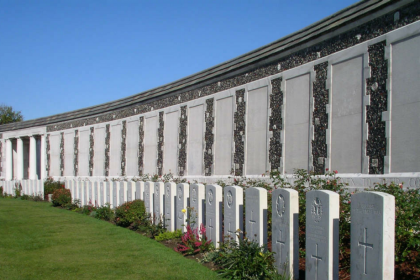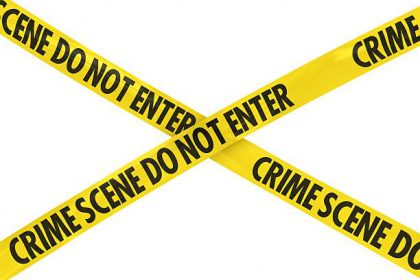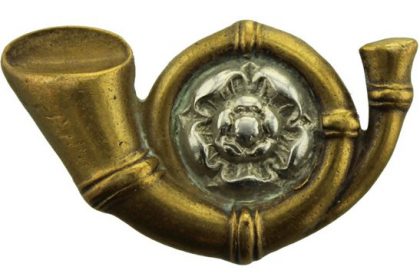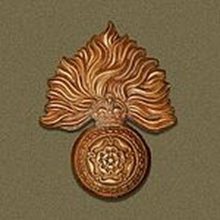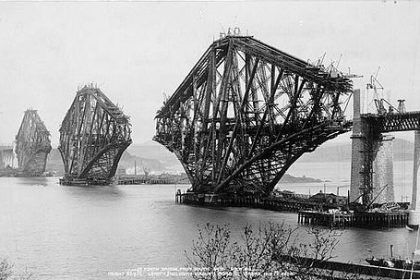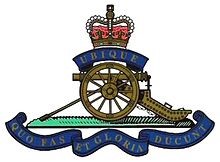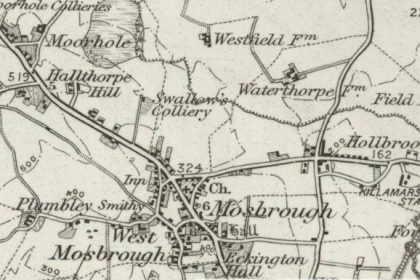At the Eckington Petty Sessions on Saturday, before T W Rodgers Esq. and J F. Swallow, Esq.; William Hutton, Mosbro’ farmer, was charged on remand with shooting Police-constable Orme, with intent to do him grievous bodily harm. Mr. Binney prosecuted, and Mr. Clegg appeared for the defendant. The evidence given at the previous sitting of the Court showed that on Tuesday evening, the 26th December. Sergeant Taylor and Police Constable Orme were passing Mosbro’ when they saw a number of persons assembled in the street. The defendant, who was in the crowd, used bad language to the constables and was ordered home. He refused, saying he would go when he liked, and Orme then gave him push. The defendant then moved off, but. threatened to shoot the officer. He went into his house and returned to the door with a gun, which discharged at Orme. The other officer went into the house, caught hold of the defendant, and after a struggle succeeded in handcuffing him. When charged with the offence the defendant said he did fire but did not intend to shoot anyone. On Saturday Mr. Clegg resumed his cross-examination of the sergeant, who admitted that they had had drinks at three or four public houses, but explained that they were on special duty and were entitled to these and other refreshments that might be required. The chairman said the officers were by no means entitled to indulge so much drink. It was altogether wrong. In answer to further questions from Mr. Clegg, the officer said no one treated him to whisky at Keeton’s public house. Mr. Peat paid for glass each for them at Archer’s. They also called at Taylor’s public house, Mosbro’. There was a crowd outside Short’s, Orme had a stick with him similar to the one produced. He did not see Orme strike a man with it.
He did not hear the people singing, “Christians Awake.” Hutton amongst the lot. Witness had been an inspector at Derby. He had been reduced to a
sergeant. Mr. Clegg: What for?
Mr. Binney: I object to the question because the witness may have been reduced for something wrong in his superiors, for something wrong in himself. Mr. Rodgers ruled that the sergeant could please himself whether be answered the question. The witness thereupon declined to give any reason for his having been reduced in rank. Re-examined: He and Orme were on special duty, having to make inquiries in a burglary. To do this was necessary to visit public houses.
Police Constable Orme’s evidence was similar to that of the sergeant. He swore, in cross-examination that he was not drunk —Mr. Clegg was putting in number of questions to him with a view of making him contradict the other witness as to the number of glasses they had, but Mr. Rodgers reminded him that this disagreement was only a minor point.—Mr. Clegg replied that he wished to show both officers were unreliable witnesses; that they were drunk and created a disturbance, assaulting everybody with whom they came in contact, and that the man whom they most cruelly assaulted was the defendant himself.—Mr. Rodgers said that, supposing the officers were the most drunken men in the world, and were as drunk as beasts, the defendant would not be entitled to go and shoot at them. If the shooting was admitted, it must be shown that the defendant did not intend to shoot at them, or that he did it out of a joke or in some other way.—Mr. Clegg said he could not do so, as the defendant could not give evidence. The prosecution dared not call the other people who saw the disturbance, Mr. Binney: We elect not to do so.
After some further discussion, Mr. Rodgers said that if they were asked to give their decision as the case stood, they would say that ‘there was a serious and aggravated assault. They would therefore reduce the case to one of summary jurisdiction:
Mr. Binney intimated that be thought better to proceed as for a common assault. He withdrew the information with the sanction of the Bench and proposed to go into the charge assault.
Mr. Clegg said there was practically no charge against the defendant, who was perfectly at liberty to leave the court. He (Mr. Clegg) was not prepared to go into the case. It was something unusual to charge a man like this. Mr. Rodgers: I beg your pardon: it is not unusual.
Mr. Clegg asked that the charge might be put the bottom of the list of summonses in the case, there being several charges against the officers for assault.
Mr. Rodgers said the Bench refused to accede to this request. The case as to shooting would be first disposed of. It stood precisely the same as before, except that they left out the intention.
Ultimately Mr. Binney said he would lay the necessary information for a common assault and take out an ordinary summons against Mr. Hutton; and the other summons were adjourned until this day week.
THE CHARGE OF SHOOTING AT A POLICEMAN AT MOSBRO. THE PROSECUTOR COMMIITTED FOR TWO MONTHS.
William Hutton, farmer, Mosbro’, appeared to answer an adjourned summons charging him with shooting at Police Constable Orme, at Mosbro’, the December last.
The Constables, he had no hesitation in saying, were both beastly drunk, and he should prove that Orme fell down in the road several times between and Mosbro’, and while at Mosbro’ they committed half-a-dozen assaults. Mr. Clegg then called the following witnesses for the defence:
Thomas Largo,- Mosbro’, deposed that he was sitting at his house door when he heard someone call neighbour named Mrs. Stevenson a “b something”. Hutton then came up. and as he passed he bid Sergeant Taylor good night.” to which the officer replied “H to good night.” Hutton said might be little more civil, and thereupon Taylor and Orme ran after him and struck—one with a staff and the other with walking stick. And he heard Hutton say was that they would bear of their conduct another day. Both officers were drunk. He returned into his house and saw nothing more.
Mary Barker, wife of Charles Barker, neighbour, said she saw the policemen come out of Stevenson’s yard, and stand in the road near her house. While they were there came up and said Good night, sergeant,” which Taylor replied “H to your good night.” Hutton then said to Orme, ” Good night. Jack,” and he replied ” Good night, BilI. Hutton, referring to what Taylor had said, remarked that it was not a nice compliment when a man passed civilly, the officers then went up him, and Sergeant Taylor struck him across the face With something lie had his hand. She followed them to Hutton’s house Hutton having already run away. As she got there a gun was fired the air. The policemen then pushed at Hutton and knocked him down. She was unable to say who fired the gun. Hutton shouted for help and she shouted to them not to murder him.
When Hutton got up, they hand cuffed him and took him away. She was following, when Orme turned round and knocked her down, without the least provocation.
This being the whole of the evidence, the Bench decided to hear the summonses taken out against Orme, charging him with number of assaults, and to give their decision on the whole.
William Stevenson, miner, Mosbro’, said he and a number of others were in the street singing Christians Awake.” While he was singing Orme came up and struck him on the head with his stick. He said nothing to him until he had struck him, when he told him to go home. He was afterwards going in the direction of his house when Orme followed, and took a run kick at his wife, who was with him, and in attempting to kick her a second time he fell down. He told the policemen he should report their conduct to Superintendent Cruit.
Walter Fox, miner, gave corroborative evidence.
Ann Stevenson also corroborated her husband’s statement to Orme assaulting her by kicking her. James Upson, miner, said he was standing Stevenson’s door when Orme came up and ‘downed” him on the ground. While he was down he paid” him over the head with the stick. He struggled and got up, when Orme kicked him. and split his trousers behind.
William Bowns, who was also present when the affair took place, stated that while trying to get into the house while the officers were arresting Hutton, Orme, who had got possession of the gun, struck him on the head with it.
The Bench having retired to consider their decision, returning into Court Mr. Rodgers said they had decided to dismiss the case against Hutton, as, although had done wrong in taking out the gun, it was not considered that he had any intent do serious injury, and it was not such an offence merited punished. The case against Orme was the more painful to them as justices. There nothing in the evidence to justify interference with Mrs. Stevenson or Hutton. and altogether it was most shocking case. In the first place appeared to have forgotten his duty to the county whose servant he was and had misconducted himself his office to degree that they could not pass over.
The sentence the Court upon him would be imprisonment in the County Gaol Derby for two calendar months on such case as Mr. Clegg selected. Mr. Clegg selected the case of assault on Mrs. Stevenson, and the others were withdrawn. Orme was expelled the force on Monday last by the Chief Constable, and Sergeant Taylor was reduced in rank to first-class constable.
BNA copywrite.
C W Lee Diary – Copywrite @ Derbyshire Times and Chesterfield Herald – Wednesday 10 January 1877
Collated by Linda Taylor

